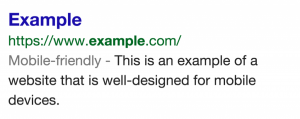In nearly every corner of the world, business leaders are discussing millennials: their attitudes, their behaviours and their beliefs. Primarily because millennials are dominating the workforce, and will make up 75% of the global workforce by 2025 according to The Deloitte Millennial Survey.
It’s essential for leaders to understand how this generation differs from their predecessors – baby boomers – in order to create highly engaged employees and consumers. On the flip side, if they fail to figure out how millennials work, they won’t be able to scratch beneath the surface when trying to recruit and retain them, let alone get the most out of their potential.
Let’s face it: many of us may not currently understand the mindset and motivations of millennials. But what better way to learn than from our mistakes, right?
Here are three potentially serious mistakes one could be making as a leader when it comes to managing millennials:
Mistake #1– Denying them Professional Freedom
Unlike the archetypal clock-punchers of the last century who used to follow a traditional 9 to 5 job routine, an estimated 74 percent of millennials crave for a flexible schedule. If provided with an alternative work schedule and the ability to telecommute, they are likely to work harder, put in longer hours and thus perform better. For them, getting the job done is more important than being “clocked in.”
Additionally, while millennials expect regular feedback and encouragement to know they are on the right track, they don’t want to be micromanaged. The millennial generation reacts well to mentoring, but they wish to have the creative freedom to work the way they see the most fit. They get frustrated if a boss hovers over their desk and don’t necessarily want to be held accountable for their every move during set-in-stone work hours. In other words, they want trust and respect.
Mistake #2 – Misunderstanding their Motivations
Some of your employees may be fuelled by money. Some of them may be driven by job security. Your millennial workforce, however, may be motivated by something more than that — financial compensation and career advancement do not present the whole picture.
Millennials tend to care passionately about the mission of their company; they want to empower their organisation to achieve bigger, world-size goals that help other people. In fact, that is one of the major motivating factors for millennials. According to a study, making a positive difference in the world is more important than professional recognition to 84% of millennials. They like to see how their daily tasks of laying bricks fit into a broader, more meaningful purpose.
A Gallup poll revealed that “engaged” millennial workers were almost 65% less likely to jump around between jobs than “unengaged” millennials. Whille millennials know the importance of keeping a company in the black, they need to be shown how they are contributing towards a purpose larger than themselves. Therefore, as a business leader, you need to ensure your work atmosphere is charged with meaning. This will boost employee engagement, ultimately leading to greater retention.
Mistake #3 – Overlooking Employee Training
Opportunities to learn and grow at their workplace are extremely important to millennials. Nearly, 75% of employees evince a strong interest in career growth opportunities. In fact, nearly 87% of millennials rank professional development as a decisive factor for any job.
It is important for business leaders to find the time and funds to invest in the professional development of millennial employees. Not only will this ensure deeper engagement, it will also help build employees who are more capable of offering value to the company.
As a leader, the responsibility to set a pace for professional development in the workplace befalls upon you. You may pay for you millennial employees to attend conferences or seminars, organise routine training sessions or invite outside speakers for a talk. In fact, sometimes offering them the time to “self-teach” may prove to be effective as this naturally curious generation is highly capable of learning new methodologies and develop skills on its own.The post 3 Mistakes Leaders Make When Managing Millennials appeared first on Paul Keijzer.
Business & Finance Articles on Business 2 Community
(17)
Report Post






